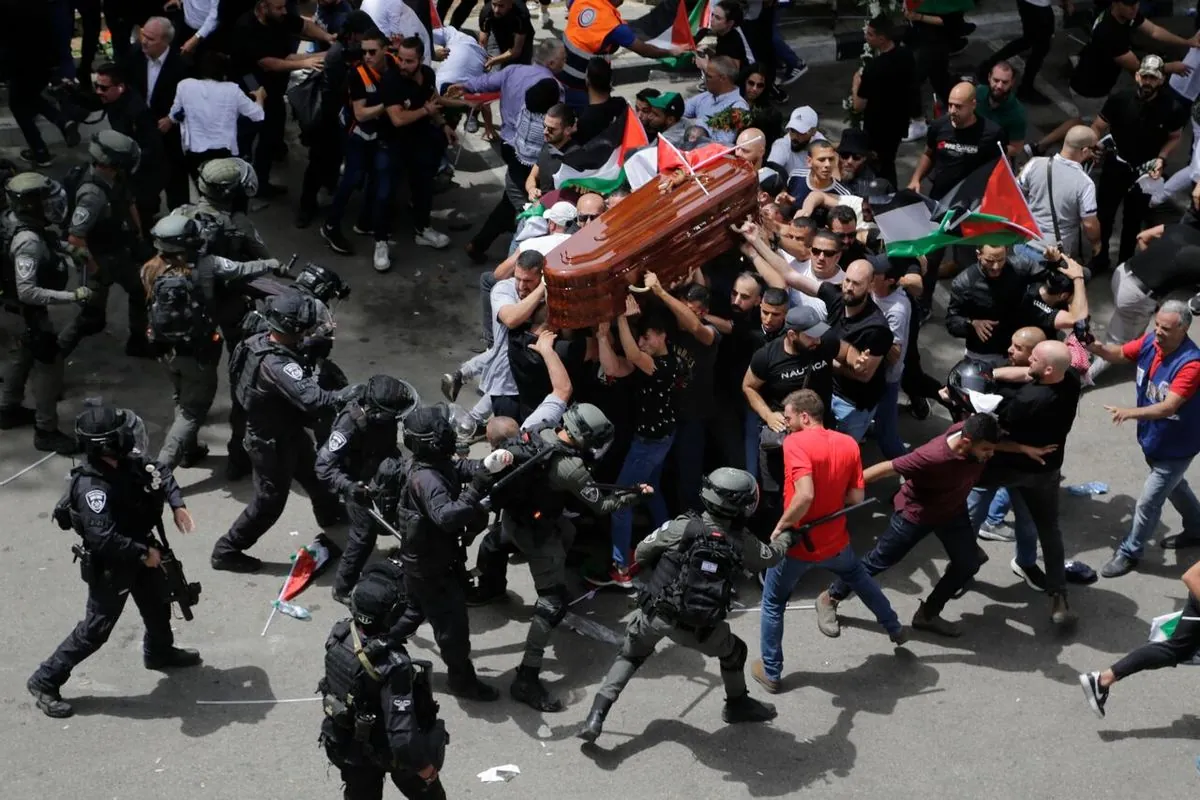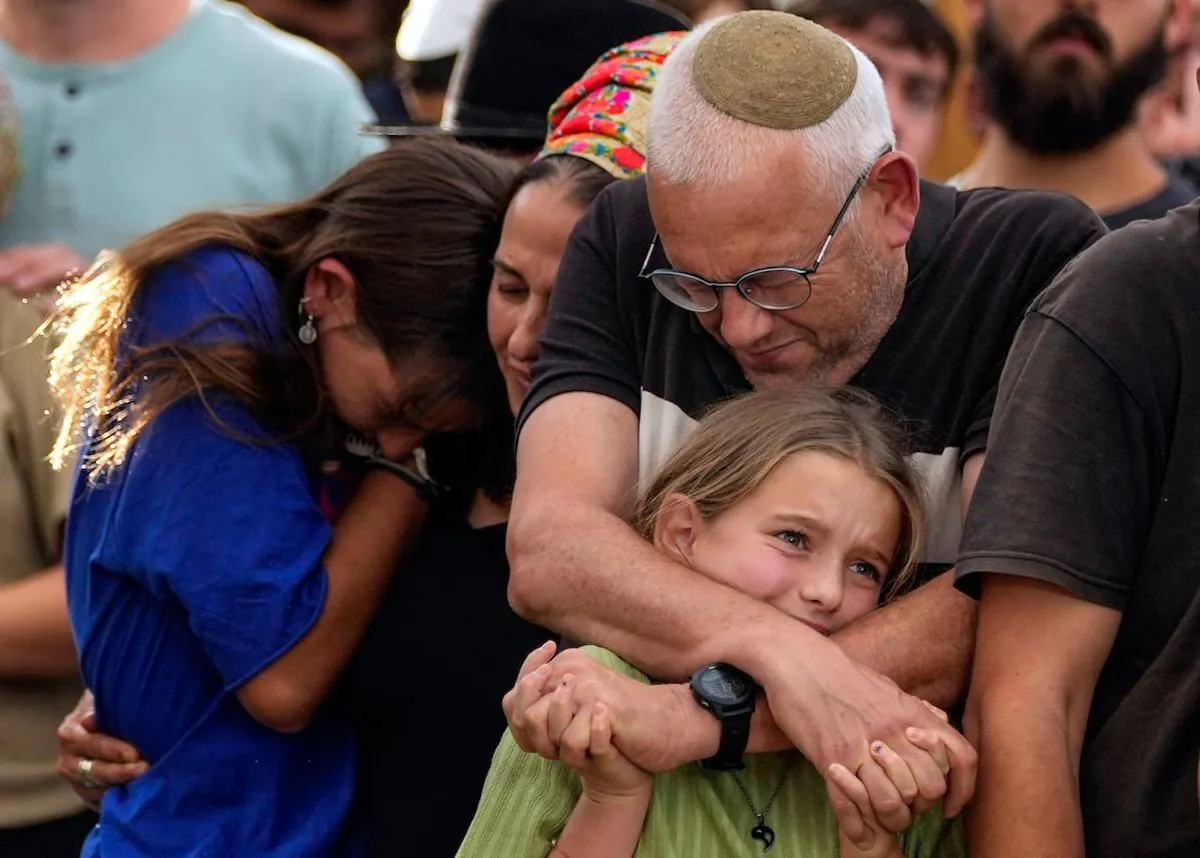Israeli Families Mourn as Six Hostages' Bodies Return from Gaza
Funerals held for six Israeli hostages retrieved from Gaza tunnels. Families express grief and anger over the handling of the hostage situation, as negotiations for remaining captives continue.

In a somber turn of events, funerals were conducted on August 21, 2024, for six Israeli hostages whose bodies were recovered from underground tunnels in southern Gaza. The remains were returned to their respective kibbutzim, where families gathered to bid farewell amidst the ongoing conflict.
Rimon Kirsht Buchshtab, 36, addressed her late husband Yagev Buchshtab during his burial near Kibbutz Nirim, apologizing for the circumstances of his return. The couple had been taken captive during the Hamas attack on October 7, 2023, with Rimon released after 50 days in captivity.

At Kibbutz Nir Oz, where one in four residents were either killed or abducted during the Hamas assault, Keren Munder laid her father, 79-year-old Avraham Munder, to rest. Keren, who had been released along with her son and mother during a brief ceasefire, expressed disillusionment with the Israeli government's handling of the hostage situation.
"We were not with you as you were abandoned again and again, to your death. How naive we were, just like on Oct. 7. We did not know that the Israeli prime minister would be sacrificing you for his 'victory image,' would choose over and over to leave you to die."
The Israel Defense Forces (IDF) reported that the bodies were discovered behind a false wall in a subterranean tunnel beneath Khan Younis. Along with Buchshtab and Munder, the remains of Chaim Peri, Alexander Dancyg, Nadav Popplewell, and Yoram Metzger were also recovered.
As of August 2024, 105 hostages remain in Gaza, with only 71 believed to be alive. Negotiations for their release have faced obstacles, including Benjamin Netanyahu's demand for a lasting Israeli military presence along the Gaza-Egypt border, also known as the Philadelphi Corridor.
Families of the remaining hostages continue to advocate for their loved ones' return, organizing protests and pleading with officials. The situation has strained relations between the hostages' families and the Israeli government, with many calling for more decisive action to secure the captives' release.
The October 7 attack by Hamas, a Palestinian Sunni-Islamic fundamentalist organization, resulted in approximately 1,200 Israeli casualties and the abduction of around 250 individuals. The subsequent conflict has led to significant loss of life on both sides and drawn international attention to the region.
As the first anniversary of the attack approaches, families of the remaining hostages, like Yelena Trupanov, whose son Sasha is still captive, face uncertainty and fear. The ongoing situation continues to impact communities in southern Israel, particularly in kibbutzim near the Gaza border, which have long been at the forefront of the Israel-Hamas conflict.


































